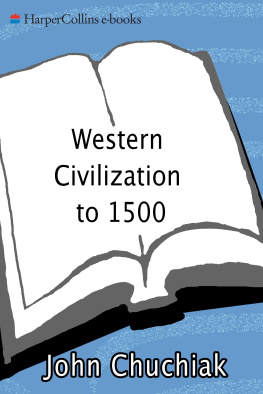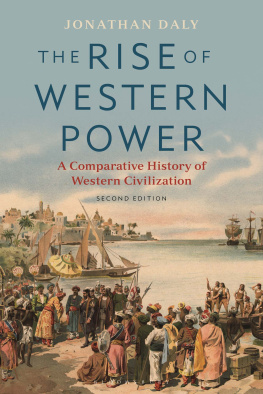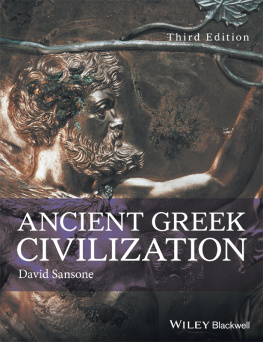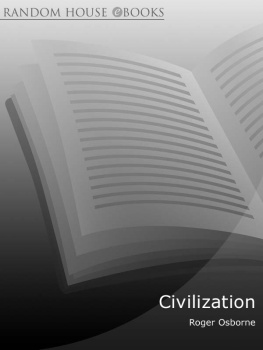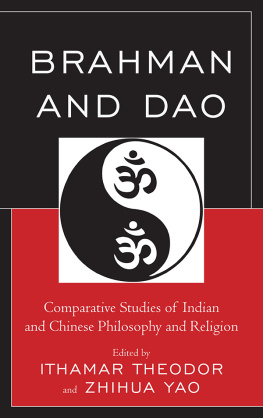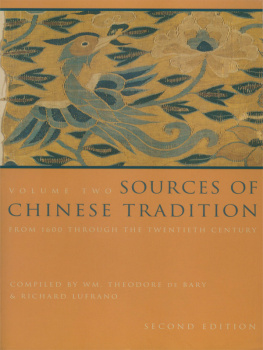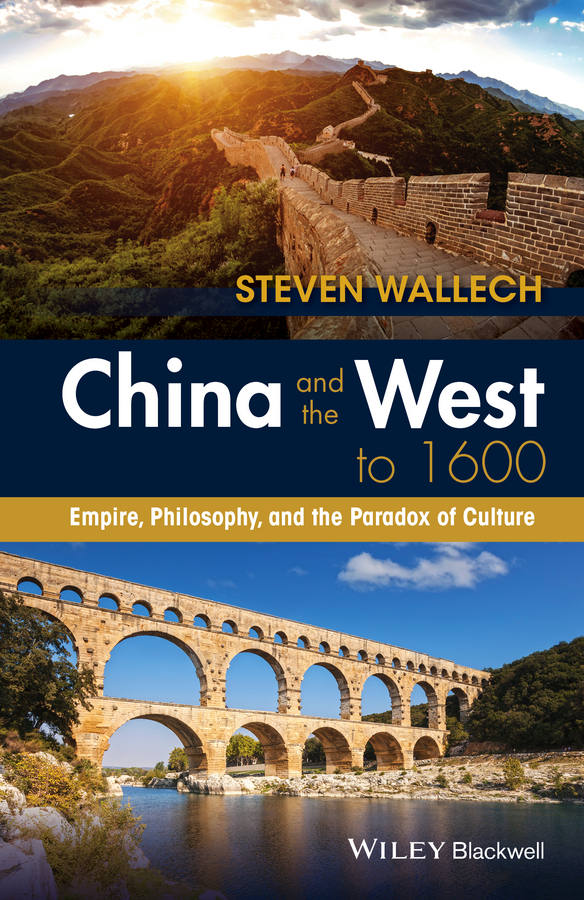
Table of Contents
List of Illustrations
- Map
Guide
Pages
China and the West to 1600
Empire, Philosophy, and the Paradox of Culture
Steven Wallech
This edition first published 2016
2016 John Wiley & Sons, Inc.
Registered Office
John Wiley & Sons, Ltd, The Atrium, Southern Gate, Chichester, West Sussex, PO19 8SQ, UK
Editorial Offices
350 Main Street, Malden, MA 02148-5020, USA
9600 Garsington Road, Oxford, OX4 2DQ, UK
The Atrium, Southern Gate, Chichester, West Sussex, PO19 8SQ, UK
For details of our global editorial offices, for customer services, and for information about how to apply for permission to reuse the copyright material in this book please see our website at www.wiley.com/wiley-blackwell.
The right of Steven Wallech to be identified as the author of this work has been asserted in accordance with the UK Copyright, Designs and Patents Act 1988.
All rights reserved. No part of this publication may be reproduced, stored in a retrieval system, or transmitted, in any form or by any means, electronic, mechanical, photocopying, recording or otherwise, except as permitted by the UK Copyright, Designs and Patents Act 1988, without the prior permission of the publisher.
Wiley also publishes its books in a variety of electronic formats. Some content that appears in print may not be available in electronic books.
Designations used by companies to distinguish their products are often claimed as trademarks. All brand names and product names used in this book are trade names, service marks, trademarks or registered trademarks of their respective owners. The publisher is not associated with any product or vendor mentioned in this book.
Limit of Liability/Disclaimer of Warranty: While the publisher and author have used their best efforts in preparing this book, they make no representations or warranties with respect to the accuracy or completeness of the contents of this book and specifically disclaim any implied warranties of merchantability or fitness for a particular purpose. It is sold on the understanding that the publisher is not engaged in rendering professional services and neither the publisher nor the author shall be liable for damages arising herefrom. If professional advice or other expert assistance is required, the services of a competent professional should be sought.
Library of Congress Cataloging-in-Publication Data
Names: Wallech, Steven, author.
Title: China and the west to 1600 : empire, philosophy, and the paradox of culture / Steven Wallech.
Description: Chichester, UK ; Malden, MA : John Wiley & Sons, 2016. | Includes bibliographical references and index.
Identifiers: LCCN 2015035753 (print) | LCCN 2015041226 (ebook) | ISBN 9781118879993 (cloth) | ISBN 9781118880074 (pbk.) | ISBN 9781118879962 (pdf) | ISBN 9781118880067 (epub)
Subjects: LCSH: ChinaHistoryTo 221 B.C. | ChinaHistory221 B.C.-960 A.D. | ChinaHistory960-1644. | EuropeHistoryTo 476. | EuropeHistory476-1492. | EuropeHistory1492-1648.
Classification: LCC DS741.5 .W23 2016 (print) | LCC DS741.5 (ebook) | DDC 303.48/25104dc23
LC record available at http://lccn.loc.gov/2015035753
A catalogue record for this book is available from the British Library.
Cover image: Corbis @iStockphoto / yangphoto @ GettyImages
Acknowledgements
The author would like to thank SuShuan Chen, Matthew Jaffe, and a third anonymous critic for the valuable suggestions and corrections they made to the draft manuscript of this book. Furthermore, the author would like to extend a special thank you to his editor, Andrew J. Davidson.
Preface
Teaching and studying world history at the college level is a uniquely challenging endeavor, the subject so immense that it can at times overwhelm the novicefirst-time instructors and students alikewith its wealth of details.
Nearly all other college or university courses in history tend to focus on a single culture or region, distinguishing it from all other human communities. As a result, such courses tend to highlight differences. To teach world history, however, the instructor must reverse this emphasis. Theme or themes must be found to explain the common problems faced by humanity, and then explore how each culture did or did not find solutions. In this manner, the instructor deals with the commonality of our shared humanity, from which certain patterns over time, or themes, emerge.
This text uses one such theme to consider the comparative histories presented. This is the artificial relationship between humans and the plants they grow, and the animals they raise, to feed their population. This theme sets the material limits that confront a culture: how many people it can feed, how much geographic space it can command, and how effectively it can use it resources. In addition, this theme reveals how the nature of the relationship between humans and their food supply produces a continuous paradox, one that every civilization must face: an abundance of food generated by agriculture feeds a growing population that soon outstrips the food surpluses generated and threatens famine, epidemic disease, and exhaustion of the land that in the extreme can lead to ecocide, or the collapse of the ecosystem. Two subordinate themes are also useful in explaining how this paradox unfolds in world history: 1) the beliefs (religions and philosophies) that the production of surplus food supplies supports as civilization tries to address the central paradox cited above, and 2) the consequences of the close association between farmers and herders as they compete for use of the land.
Two civilizations are singled out in the pages that follow to facilitate this study: China and Western civilization. These two make good case studies because they were the richest and most powerful civilizations in world history during the ancient era. They produced material features that were remarkably similar. They faced the same internal problems at roughly the same time. They generated great philosophies in an attempt to find solutions to common problems. And they both faced the threat of invasion by a nomadic enemy as they spiraled into collapse at the end of the ancient era.
Post-Han Empire China and post-Roman Empire Western civilization diverged during the course of the Middle Ages. This divergence, the different paths China and the West took after the fall of their respective ancient empires, was in part a reflection of the varying degree of success they achieved in implementing the different philosophies they had developed to try to address the central paradox of culture. This divergence also reflects their levels of success and failure in dealing with nomads, ever present on their frontiers.
Furthermore, as the paradox of agriculture unfolds, subordinate paradoxes appear. The most important one to the study of world history is that the success China achieved in maintaining its ancient traditions ended up trapping Chinese culture in these traditions. In contrast, medieval Europe failed to recover the unity of Rome. Also, institutional contradictions emerged as a result of trying to mix surviving features of Greco-Roman culture with Christian practices and values and Germanic (and nomadic) customs. This created a dysfunctional feudalism that failed so spectacularly that Europe broke with tradition and modernized, making Western civilization the first to do so. Hence, the original paradox of culture, agriculture, spawned a series of subordinate ones considered by this study. The subordinate paradoxes reveal the great complexity of a great civilization in a simple, and, we hope, engaging way.
Next page

